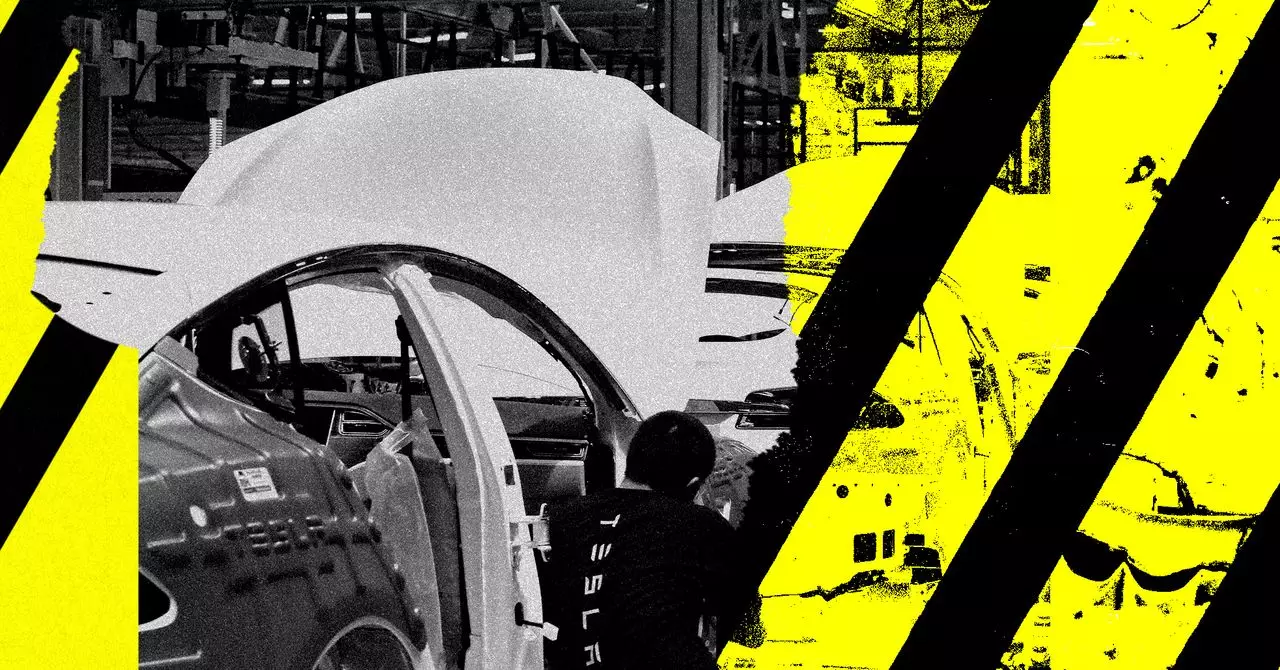In the world of groundbreaking technologies, the promise of innovation often overshadows the underlying safety concerns that accompany it. Companies like Tesla, SpaceX, and The Boring Company have redefined industries and captured the public’s imagination, but the grim reality of workplace safety at these enterprises paints a different picture. The AFL-CIO’s recent memo unearths alarming statistics regarding accidents and alleged safety violations reported since 2016, provoking serious questions about the ethics of prioritizing innovation over employee welfare.
Fatal Consequences: A Look at Recent Incidents
At the heart of the matter lies the tragic story of Victor Joe Gomez Sr., a licensed electrician who lost his life while working at Tesla’s Gigafactory in Austin, Texas. According to OSHA investigations, Gomez was electrocuted while inspecting electrical panels that had not been properly de-energized. This incident signifies not just an isolated tragedy, but a systematic oversight regarding safety protocols that should form the bedrock of any high-tech manufacturing facility. The case remains open as Tesla challenges it, reflecting a concerning trend: numerous similar cases remain open simply because the company chooses to dispute them.
The statistics provided by the AFL-CIO reveal a darker narrative. With fingertip amputations reported in separate incidents at Tesla facilities, it begs the question: how many lives and futures are at stake when companies operate under a cloud of unresolved safety issues? It raises the urgency for more stringent oversight and accountability — a forgotten principle when innovation is heralded as the new gold standard.
Conditions of Silence: Whistleblower Fears
Another layer to this troubling narrative is the chilling effect on whistleblowers. The AFL-CIO’s Liz Shuler states that numerous Tesla workers continue to report unsafe conditions, yet many fear retaliation. The skepticism surrounding reporting safety violations could deter employees from voicing their concerns, thus perpetuating a culture of silence. Though Musk’s companies are touted for their forward-thinking approaches, the question stands: at what human cost does their progress come?
The whispers of dissent from within the workforce have not gone unnoticed by former OSHA officials. Any undue pressure aimed at dissuading workers from reporting safety hazards can foster a toxic work environment that, ironically, hinders the very innovation these companies champion. When whistleblowers are intimidated, the safety net intended for employees becomes frayed, and the fabric of workplace safety deteriorates.
Ongoing Citations: A Pattern of Defiance
Despite being an industry leader, Tesla’s reluctance to promptly address safety citations raises eyebrows. In the past five years, approximately 46 cases resulted in OSHA citations for Tesla, with a staggering 27 remaining open due to the company’s aggressive stance against compliance. This pattern reveals not only a potential disregard for employee welfare but suggests that financial calculations trump worker safety.
David Michaels, a former OSHA assistant secretary, points out that larger companies like Tesla might perceive it financially advantageous to contest OSHA citations instead of addressing the underlying hazards. Such a mindset prioritizes profit margins over lives, creating a troubling business model where cutting costs can lead to irreversible consequences. If employee safety becomes an optional component of success, we risk programming a corporate culture that overlooks the value of human lives.
Redefining Corporate Responsibility
In the arena of technological advancement, we must challenge the notion that rapid development justifies lax safety practices. Safety should not merely be a checkbox or an afterthought but a fundamental principle woven into the company’s mission. For Tesla, SpaceX, and The Boring Company, the road ahead requires reassessing their commitment to the workforce that fuels their innovations.
As more incidents come to light, the demand for improved safety measures becomes crucial, not only for the protection of the individuals involved but also for the sustainability of the companies themselves. Embracing accountability could redefine industry standards and instigate a transformative shift — one where innovation and safety coexist harmoniously rather than in conflict.

